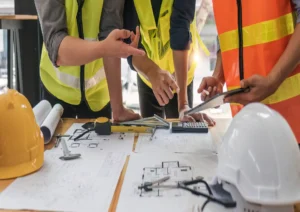When buying a home, understanding the finer details of your homebuyer report can be essential in making well-informed decisions. These reports are comprehensive documents produced after an inspection of the property and can provide keen insights that potential buyers should evaluate carefully. Here we delve into the key points to consider when interpreting your homebuyer report.
Analysing the Property’s Overall Condition
The first aspect of your homebuyer report is an assessment of the overall condition of the property. It offers a comprehensive view, giving you an initial sense of whether the property has been well-maintained or if it might be hiding significant issues. This section typically categorises the condition in general terms, indicating if it requires immediate attention, minor repairs, or is in satisfactory shape. Understanding this will help you prioritise areas that may need further investigation or negotiation.
Recognising External and Internal Defects
Identifying both external and internal defects is another crucial component of the report. External issues could involve the structural integrity of the building, roof problems, or concerns with the façade. Internally, it may highlight problems with the electrical systems, plumbing, and other fixtures. Recognising these defects will allow you to gauge the extent of repairs needed and how they might impact your budget and timeline.
Understanding the Implications of Valuations
Valuation is a critical element for any homebuyer because it affects not only the mortgage you might be seeking but also your offer strategy. The report’s valuation section provides an expert estimate of the property’s market worth. Comparing this valuation with your intended purchase price can highlight discrepancies and serve as a powerful tool in negotiation. If the valuation is less than expected, it may indicate you’re overpaying, a factor that should feature strongly in your decision-making process.
Evaluating Energy Efficiency
Energy efficiency is becoming increasingly important in home buying. This section of the report examines how well the property conserves energy, informing you about potential future savings or costs related to heating, cooling, and electrical systems. Insights here can impact your long-term financial planning and willingness to proceed with a purchase if significant improvements need to be made.
Considering Future Maintenance Needs
Lastly, the report should provide you with prospective maintenance requirements. This insight is vital for budgeting post-purchase costs and planning for future expenses related to maintaining the property’s condition. Understanding the scope of future maintenance underscores whether the property aligns with your expectations and financial capabilities.
By diving deep into these aspects of your homebuyer report, you empower yourself to make knowledgeable and strategic decisions, turning your potential property purchase into a rewarding investment.






